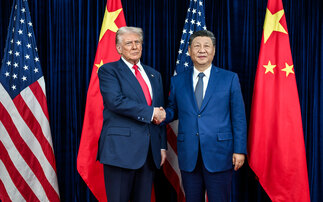As the dust settles on the US elections, a couple of uncertainties remain. Control of the Senate will not be resolved until runoffs are conducted in January 2021, to name one example. But investors weighing how much has changed should also consider the broader trends that remain in place. When it comes to key elements around geopolitics and economic strategy, will it be much more a case of style over substance?
Focus on the US
First, against a backdrop of a rolling pandemic crisis, both the near-term response and the medium-term consequences will mean an inevitable focus on the domestic economy. This implies an ongoing use of both fiscal and monetary policy to support the demand side of the economy, and additional investment in infrastructure to stimulate economic activity. The possibility of a split Congress means that higher-end estimates for fiscal stimulus, such as those anticipated under ‘blue wave' scenarios of Democratic control of both houses, will probably fail to materialise. Once again, the Fed will be expected to carry more of the weight. Still, as we go through the coming quarters, the imperative for the White House and Congress will be to iron out the particular targets of spending (albeit at the lower end of the range of estimates), with areas such as infrastructure or healthcare likely to be beneficiaries.
Geopolitics unmoved?
Second, again discounting the issue of partisan approach, it is hard to see a meaningful near-term change in the geopolitical landscape, with key areas such as US-China relations potentially remaining fragile if we look at rhetoric from all sides of the US political spectrum over the course of this year. In many ways the narrative of competitive threat and security risk will just act to reinforce a need for investment closer to home. And while recent months have highlighted that global trade flows continue despite tariffs and other bilateral barriers, these flows are also likely to grow more regional over time as shorter supply chains become a priority in the wake of Covid.
The view from Asia
Third, I expect the direction of US economic strategy outlined above will continue to act as a drag on the US dollar in relative terms. Despite what is likely to be a more limited scale in a split Congress scenario, US stimulus measures and their impact on currency markets should, at the margin, ease conditions for Asia and developing markets globally. This, combined with a greater success in containing the spread of Covid-19 across large parts of Asia, will see a scope for not only a broader-based recovery in the region, but for Asia to increasingly decouple from what is being experienced elsewhere in the world.
Market implications
Turning to markets and how investors should be positioned as we head into 2021, clearly the points above speak to the attraction of non-dollar denominated assets. With the prospect of increased volatility, this suggests a good risk-reward balance in Asian fixed income markets, and in particular Chinese government bonds and Asian high yield bonds. On the equity side, we see value in markets such as India and across South East Asia, which have lagged much of the rest of the region over the course of 2020, and also for Japan, given the ongoing focus on corporate reform combined with attractive valuations. As the dust settles on the 2020 US elections, these are some of the broad global trends to watch.
Learn about Fidelity's Asia expertise and investment strategies
Important information
This information is for investment professionals only and should not be relied upon by private investors. The value of investments and the income from them can go down as well as up and you may not get back the amount invested. Investors should note that the views expressed may no longer be current and may have already been acted upon. Changes in currency exchange rates may affect the value of an investment in overseas markets. Investments in small and emerging markets can also be more volatile than other more developed markets. The value of bonds is influenced by movements in interest rates and bond yields. If interest rates and so bond yields rise, bond prices tend to fall, and vice versa. The price of bonds with a longer lifetime until maturity is generally more sensitive to interest rate movements than those with a shorter lifetime to maturity. The risk of default is based on the issuers ability to make interest payments and to repay the loan at maturity. Default risk may therefore vary between government issuers as well as between different corporate issuers. Issued by FIL Pensions Management and Financial Administration Services Limited, both authorised and regulated by the Financial Conduct Authority. Fidelity International, the Fidelity International logo and F symbol are trademarks of FIL Limited. UKM1120/32568/SSO/NA












